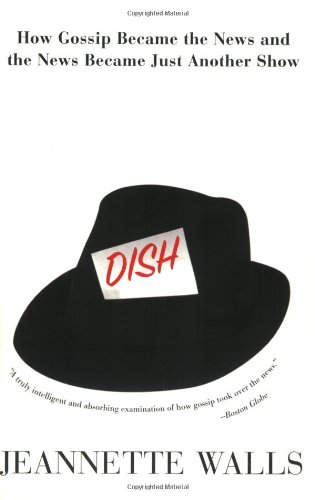
Dish
How Gossip Became the News and the News Became Just Another Show
کتاب های مرتبط
- اطلاعات
- نقد و بررسی
- دیدگاه کاربران
نقد و بررسی

February 28, 2000
Who wouldn't want to know who Peter Lawford called to "clean" Marilyn Monroe's apartment hours after her death? Or Eddie Fisher's blunt views about dating Jewish women? Or what deal Ted Kennedy made with the National Enquirer to suppress the more incriminating stories about him? Like it or not, gossip is an integral part of our information-driven world; even many who decry its increasing prevalence in mainstream news venues enjoy and even relish it. Walls, a former gossip columnist for the E! Channel and novelist (Pest Control), has written a well-researched, witty history of the role gossip has played in U.S. media, politics and life. While she doesn't hesitate to produce plenty of choice information in the course of her survey, her intent is serious and well executed. Organizing her book around specific historical moments in the gossip industry's evolution--the rise and fall of Confidential Magazine in the 1950s, the power that Louella Parsons and Hedda Hopper wielded in Hollywood, Elvis's death (and the endless refutations of it), Tina Brown's editorship at the New Yorker--Walls deftly examines and illuminates her main points: among them, that public figures exploit and benefit from "gossip" as much as they claim to be harassed and harmed by it (Princess Diana is a perfect example); that the thin line between "news" and "gossip" always depends on the media's biases and self-interests (JFK's not-very-secret affair with Monroe); and that the concept of "privacy" for public figures is always political (Monicagate). Provocative and invariably entertaining, Walls gives dishing the dirt its historical, social and political due.

























دیدگاه کاربران